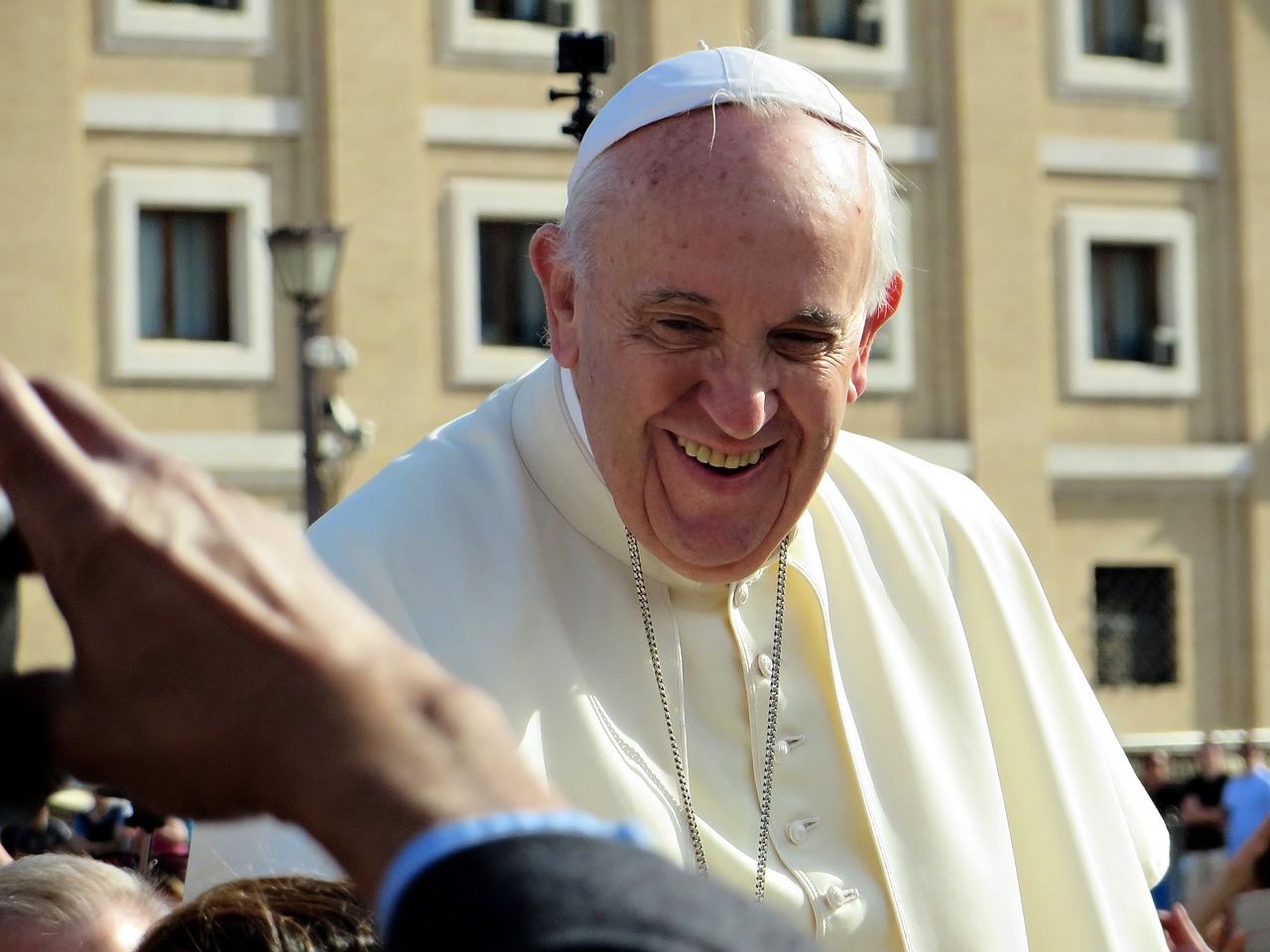Pope Francis says earth is at ‘breaking point’ in new Apostolic Exhortation ‘Laudate Deum’
10 October 2023

Pope Francis has published an Apostolic Exhortation building on his 2015 encyclical, Laudat Si’. The Pope challenges climate deniers, saying that the human origin of global warming is now beyond doubt. ‘We’re not reacting enough,’ he says, ‘we’re close to breaking point.’ In particular, the Exhortation looks ahead to COP28, which will be held in Dubai in November.
Pope Francis begins his Apostolic Exhortation by invoking Saint Francis of Assisi’s message of praising God for all His creatures. He highlights how Saint Francis reflected the sensitivity of Jesus towards all living beings. Pope Francis expresses admiration for Jesus’ tenderness towards creatures.
He then mentions that eight years have passed since he published the encyclical letter “Laudato Si’,” in which he expressed his concerns about the environment and our common home. He acknowledges that the responses to these concerns have not been adequate, and the world is facing environmental challenges that are pushing it towards a breaking point. Pope Francis emphasizes that climate change will impact various aspects of human life, including healthcare, employment, resources, housing, and migration.
Pope Francis stresses that climate change is not just an ecological issue, but a global social problem linked to the dignity of human life. He cites the Bishops of the United States and the Synod for Amazonia, who emphasize that caring for the Earth and caring for one another are intimately connected. Climate change disproportionately affects vulnerable communities, both locally and globally. He quotes African bishops, who describe climate change as a tragic example of structural sin.
His Holiness noted that the reflection and information gathered over the past eight years have led to a deeper understanding of the issue and a sense of urgency. Hence, he shares these pages to address the pressing situation.
Pope Francis discusses the global climate crisis in this document, emphasizing the undeniable signs of climate change, including extreme weather events, heatwaves, and droughts. He argues that human-induced climate change is accelerating at an unprecedented pace and highlights the correlation between rising greenhouse gas emissions and these changes. He also points out that certain effects of the climate crisis, such as ocean warming and ice melting, are irreversible for centuries.
Pope Francis counters arguments that dismiss climate change by explaining that the rapidity of recent changes is due to unchecked human intervention on nature. He stresses that the climate crisis is caused by the increase in greenhouse gases and that it cannot be ignored. He notes that some effects of climate change are already harming the planet, including ocean acidification and melting ice sheets.
The document warns of the possibility of reaching a critical point where small changes lead to irreversible and catastrophic consequences. Pope Francis calls for a broader perspective that balances progress with environmental responsibility and highlights the interconnectedness of all life on Earth. He also references the COVID-19 pandemic as a reminder of the global nature of challenges and the need for collective action to address them.
Pope Francis discusses several key points in this text:
Technocratic Paradigm: He highlights a technocratic paradigm that values technological and economic power above all else, leading to the idea of infinite growth, which is attractive to economists and financiers. This mindset, he argues, has detrimental effects on the environment.
Environmental Degradation: Pope Francis points out that the obsession with expanding human power through technology has led to the exploitation of natural resources and a disregard for the environment. He raises concerns about the concentration of power in the hands of a few.
Ethical Responsibility: He emphasizes the need for ethical considerations in the use of power and technology, cautioning against unchecked technological advancement that can lead to destructive consequences, as seen in historical events like the use of atomic bombs.
Weakness of International Politics: The Pope criticizes the limitations of international politics in addressing global environmental challenges. He calls for stronger multilateral agreements and a focus on the global common good.
Climate Conferences: He discusses the history of climate conferences, including successes and failures, and highlights the importance of the Paris Agreement. However, he also acknowledges that global emissions continue to rise, emphasizing the need for more effective and binding measures.
COP28 in Dubai: Pope Francis expresses hope for the upcoming COP28 conference in Dubai, calling for binding commitments for energy transition, intensive monitoring, and the involvement of all nations to address climate change effectively.
Spiritual Motivations: The Pope invokes religious and spiritual motivations for environmental stewardship, emphasizing the interconnectedness of all creatures and the need for a holistic approach to address environmental challenges.
In summary, Pope Francis advocates for a shift away from the technocratic paradigm, the responsible use of power and technology, stronger international cooperation, and a renewed commitment to addressing climate change and environmental degradation as a global community. He also emphasizes the spiritual and ethical dimensions of caring for the planet.
To read the full document of Pope Francis’ Laudate Deum, CLICK HERE.




